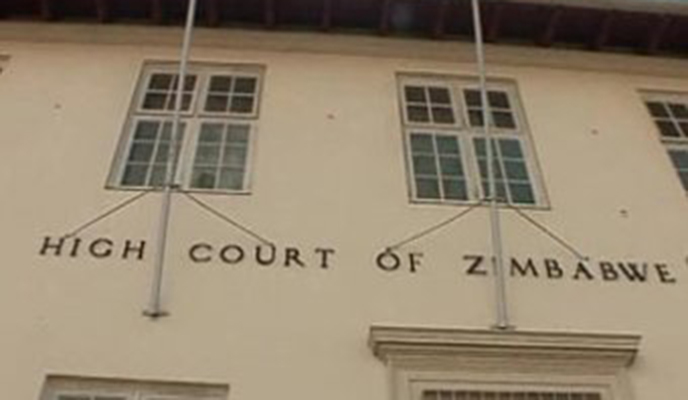
THE wrangle over the proposed introduction of bond notes to ease the country’s cash crisis took a new twist yesterday, with the Constitutional Court (ConCourt) saying it was premature to legally challenge the move, as the government had not yet crafted an enabling law to operationalise the currency.
BY CHARLES LAITON/RICHARD CHIDZA
The ConCourt was responding to former Vice-President Joice Mujuru’s court bid to block the introduction of the bond notes.
The ConCourt bench dismissed the application with costs, saying it was premature and speculative, since the said bond notes would not be introduced without a legal framework.
This came as social movement group, Tajamuka/Sesijikile, launched a campaign against suspected German companies believed to have been contracted by the Reserve Bank of Zimbabwe to allegedly print the notes.
Mujuru, through her lawyer, Lovemore Madhuku, who was instructed by Gift Nyandoro, argued that government’s plans to introduce bond notes were an infringement on her constitutional rights.
But, in its determination, the ConCourt said there was no indication that the government intended to introduce the bond notes without an Act of Parliament or a statutory instrument, which, if found to be in violation of the country’s laws, would be subject to a court challenge.
“If the bond notes are introduced without the enactment of an Act of Parliament or a statutory instrument, then that action can be challenged in court. Are you, therefore, suggesting that the bond notes will be introduced without a legal framework?” Chief Justice Godfrey Chidyausiku asked Madhuku, who responded affirmatively.
- Chamisa under fire over US$120K donation
- Mavhunga puts DeMbare into Chibuku quarterfinals
- Pension funds bet on Cabora Bassa oilfields
- Councils defy govt fire tender directive
Keep Reading
Madhuku said although there was no legislation on the introduction of bond notes, there were indications they could be introduced within a two-week period given the fiscal policy review statement that was issued on September 15, 2016 by Finance minister Patrick Chinamasa.
“Their intention (government) to introduce the bond notes infringes on the constitutional rights of my client (Mujuru) and focusing on the conduct of the respondents, there is no indication of what they are going to do, thus, we are saying there is likelihood that her rights will be infringed,” he said.
“The respondents are already taking action; announcement itself is action and does amount to the unconstitutionality of the whole process. It cannot be ascertained whether or not the respondents are going to act lawfully.”
Deputy Chief Justice Luke Malaba said fears over the introduction of bond notes were not founded on facts, since there was a dispute between Mujuru and the government, which was saying it would only introduce the bond notes based on the country’s laws.
Justice Malaba’s sentiments were echoed by Chief Justice Chidyausiku, who said Mujuru could seek legal recourse after the notes had been formally introduced.
“I don’t see how that cannot be cured. Even two days after their introduction, she (Mujuru) can file an urgent chamber application,” he said.
“But right now, what is the factual basis for us to know whether it is going to be in terms of an Act of Parliament or statutory instrument or even the Constitution? On what basis do we assume that maybe they will amend the Constitution and introduce the bond notes?”
The government was represented by Advocate Thabani Mpofu and Attorney-General (AG) representative, Florence Chimbaru.
Meanwhile, Tajamuka/Sesijikile has started putting pressure on central bank governor, John Mangudya, to reveal details of the apex bank’s deal with a German company contracted to print the contentious bond notes — set for release next month.
The group this week wrote to Munich-based Giesecke and Devrient GmbH, warning them against “abating” the Zimbabwean government’s excesses.
Part of the letter addressed to the German firm’s spokesperson, Andrea Nitsche, read: “We are Zimbabwean citizens across the world, concerned with our government’s proposed policy to introduce a surrogate currency termed bond notes.
“We are worried that your company, having a history of supporting President Robert Mugabe’s administration between 2005 and 2009, may have been contracted to print the said bond notes earlier this year.”
Giesecke and Devrient supplied paper to print bearers’ cheques.
“We also appreciate that you operate in Germany, a leading member of the United Nations and a leading member of the European Union, and that you have certain minimal moral and legal standards that bind your worldwide conduct of business, [but] rendering support to a dictatorship bent on oppressing its 14 million people through brute force is a deeply repugnant [way] of doing business,” the strongly-worded letter said.
Tajamuka/Sesijikile spokesperson, Promise Mkwananzi, said his organisation was well-informed that Giesecke and Devrient were printing bond notes.
“We are no longer guessing; we have credible information that they are already printing. We are now looking for legal representation in Germany to sue that company. They cannot be seen to be abating a dictatorship,” he said.
But Nitsche denied being involved in any form of business arrangement with the Zimbabwean government.
“We do not produce anything nor do we currently plan on producing anything for the Zimbabwean central bank. If you have further questions on any currency or country, please inquire with the central bank in question,” he said.
Tajamuka has also given Mangudya until October 12 to name the company he contracted to print the bond notes.
The group also demanded that he furnishes the responsible parliamentary portfolio committee with the bond notes printing agreement, and publish a general notice containing the full schedule of the Treasury Bills the central bank has issued since July 2013.
The letter also demanded the publication of the list of beneficiaries of the RBZ farm mechanisation scheme, whose $1,4 billion debt has since been assumed by the government.











